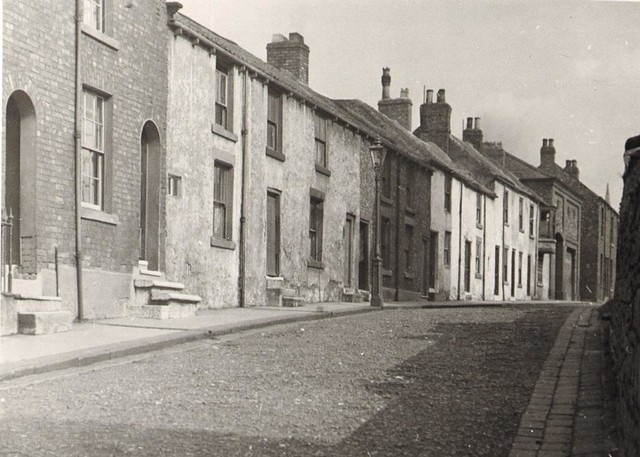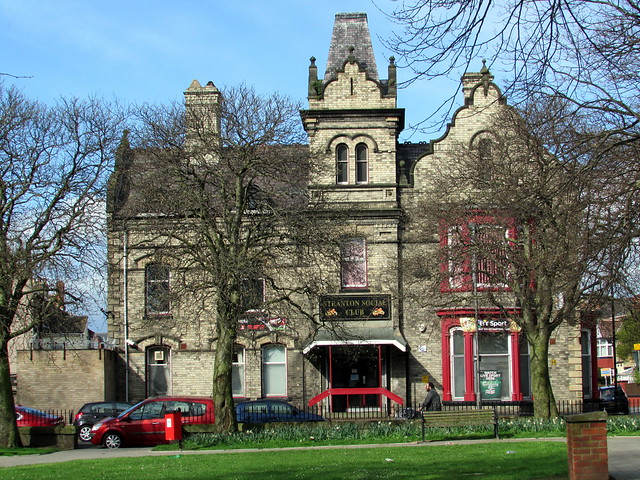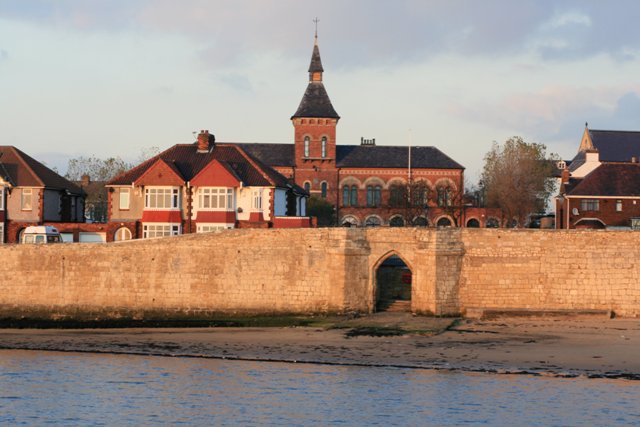That Was the Year That Was - 1978

-
Description
1978 Following on from the oil crisis Japanese car Imports account for half the US import market. The first first ever Cellular Mobile Phone History of Mobile Phones is introduced in Illinois and Space Invaders appears in arcades Launching a Craze for Computer Video Games. Sweden is the first country in the world to recognize the effect of aerosol sprays on the Ozone Layer and bans the sale. The Serial killer David Berkowitz, "Son of Sam," is convicted of murder after terrorizing New York for 12 months. 1978 is also a great year for movies with Grease summer opening on June 16th, Saturday Night Fever and Close Encounters of the Third Kind all showing in Movie Theatres around the world. 'Britain was the Sick Man of Europe'. The unions and inflation were out of control. Our inefficient nationalised industries were an expensive disaster. The Labour governments of 1974-79 were complete flops. The winter of discontent began in private industry before spreading to the public sector. The strikes seriously disrupted everyday life, causing problems including food shortages and widespread and frequent power cuts. Prices Average house price: £13,820 Milk (1 pint): 11p Bread (800g loaf): 28p Cigarettes (20): 58p 1978 – the year of over abundance of polyester flares and bouffant hair, Grease and Superman at the cinema and the invention of the Sony Walkman. Worldwide unemployment rises after several decades of near full employment. The US Dollar plunges to record low against many European currencies. The US stops production of the Neutron Bomb. India faces it's longest and worst monsoon season in modern times leaving two million homeless. Due to poor Cold War Relations United States bans sale of latest computer technology to Soviet Union. The first online forum goes online forum - the CBBS - goes online in Chicago. One user at a time can post a message. Argentina captain Daniel Passarella raises the World Cup Trophy as he is carried shoulder high by fans after Argentina had beaten Holland 3-1 in the 1978 World Cup Final. The Vatican has three popes: Pope Paul VI dies at age of 80, Pope John Paul I becomes Pope from August 26th and dies just 33 days later on September 28. Cardinal Karol Wojtyla then became Pope John Paul I shortly after. Sweden became the first nation to ban aerosol sprays that are thought to damage earth's protective ozone layer. Sony built its first prototype Walkman. Grease became the biggest grossing film and 'You're the One that I Want' was number one for nine weeks. The Garfield cartoon strip was published for the first time. In a year with more than its share of notable deaths there was also one very notable birth. A little before midnight on 25 July, Louise Brown, the world's first IVF baby, was born. The 5lb 12oz (2.61 kg) girl ushered in a fertility revolution that continues to this day. The former Italian prime minister Aldo Moro was kidnapped and murdered by the Red Brigades; Pope John Paul, head of the Roman Catholic church for just over a month died, and Carl Bridgewater, a 13-year-old paper boy, was shot dead after disturbing a burglary in Staffordshire. Georgi Markov, a Bulgarian dissident, was murdered in London with an umbrella that carried a poison pellet. In Jones town, Guyana, 918 people died in a mass suicide. The musical world said goodbye to Keith Moon, Jacques Brel, and – most notoriously of all – Nancy Spungen, who was stabbed to death in the Chelsea hotel in New York by Sid Vicious of the Sex Pistols. The Bee Gees continued to dominate the charts thanks to their soundtrack to the previous year's Saturday Night Fever, although Boney M (Rivers of Babylon), Paul McCartney (Mull of Kintyre), and Kate Bush (Wuthering Heights) also found chart success. The Sex Pistols played their last gig together and Rod Stewart asked: Do Ya Think I'm Sexy? Audiences headed to the cinema to watch Danny Zuko pursue Sandy Olsson in Grease, a goofy reporter from the planet Krypton pursue Lois Lane in Superman, and Turkish justice pursue an American drug smuggler in Midnight Express. Those huddled around smaller screens saw Roman Polanksi flee to the UK and then France to escape the pursuit of US justice after admitting unlawful sexual intercourse with a 13-year-old girl. They also witnessed the TV debuts of, among other shows, Grange Hill and Dallas. Ipswich Town beat Arsenal 1-0 to win the FA Cup. Democratic government returned officially to Spain after a referendum approved a new constitution and the Nobel prize for literature was won by the Polish-born American writer Isaac Bashevis Singer. Keith Moon of the Who Dies On Sept. 7, 1978, the world lost one of its most unique children when Keith Moon left us, far too soon. Much more than simply ‘the drummer for the Who,’ Moon defiined the term “one of a kind” not only in his ability and style behind the drum kit, but in his utter irreverence and over the top way of life. Moon was born on August 23, 1946. By the time he was in his teens, was already turning heads as a drummer. His joining the Who was nothing short of perfect. He added a much needed component to their equation, acting as the comic foil to the often very serious Pete Townshend. Moon’s drumming style seemed to border on pure chaos, but in reality he was always firmly in control behind the wheel. And what a ride! Unlike the subtle, yet effective, approach of contemporaries like Charlie Watts or the rock solid Ringo Starr, Moon took an entirely different sensibility to the drum kit, inspiring countless future musicians along the way. Add in bassist extraordinaire John Entwistle, and the Who had themselves a rhythm section with the range of an orchestra. Moon’s short, sweet life came to and end after a night of partying — and to be fair, a lifetime of testing his own limits. Ironically, his death was caused from an overdose of pills that were intended to combat his ongoing alcoholism. The medication was primarily a sedative, only a handful of which would have caused death. Police reports indicate that he took nearly a third of his 100 pill prescription. “It was a silly mistake,” said Pete Townshend in the 2007 documentary ‘Amazing Journey.’ “He just always took pills in handfuls, it was just a habit that he had.” Heminevrin, the prescribed drug in question, disabled his esophagus, which prevented him from vomiting, thus suffocating him. While Moon was no stranger to chemical intake, he never hit on hard drugs, prefering alcohol and pills to be his demon. “He was never going to grow old gracefully,” said manager Bill Curbishley, “I don’t think he was destined to make old bones. I suppose he was designed in such a way to be remembered as he was.” Sadly, the band had just begun a new chapter in their career with the release of the ‘Who Are You’ album just weeks prior to Moon’s death. At the time, fans cryptically noted that on the cover, Moon is sitting on a chair that has the words ‘Not To Be Taken Away’ stenciled on it. A madman behind, and away from the drum kit, he didn’t earn the nickname ‘Moon The Loon’ for nothing. The tales of his crazed behavior is the stuff of legend, but 32 is far too young for him to have checked out. Botham sets all-rounder record Ian Botham’s test cricketing career was sprinkled with many records, some of which still stand: he five times bagged five wickets in an innings and scored a century in the same match (the next best is twice); he was the first test player ever to score a century and take 10 wickets in a match; and he is still the leading English test wicket taker, his total of 383 likely to have been far higher had his speed not been hampered in the latter part of his career with a back injury that eventually forced his retirement. Ian Botham came to the game as a life force, his verve in stark contrast to many of those who batted with him – Boycott , Tavaré and Brearley for example. Having burst on the test scene aged 21, taking a more than creditable 5 – 74, and scoring 25 in his one knock, he was soon a fixture in the side. In his second international season Botham showed himself as a true all rounder, in the Trent Bridge Test against Pakistan setting a record still not bettered in world cricket : he scored a dashing 108 (though it should be remembered that while immensely powerful Botham was also a very ‘correct’ batsman), and then devastated the visiting side with swing bowling that most found totally unplayable, taking 8 – 34. Mike Brearley, his captain, called him a colossus; Wasim Bari the opposition captain described him as a magnificent cricketer, and so he certainly was. Cambridge Sink In Boat Race It began in 1829 (when on June 10 the Oxford boat won), and became an annual thing in 1856. Since then the varsity boat race has been part of our sporting calendar, though given (as has frequently been pointed out) the same two teams always get to the final, and that results that go against form are infrequent, it rarely offers fingernail biting tension. But on six occasions in its history the boat race has managed to spring the surprise of a sinking, the first time in 1859, and the most recent in 1984. In 1912 both boats sank, forcing a re-rowing on the following Monday. For some reason the sinking that most stays in the memory was that in 1978. Choppy waters from a more than brisk sou’wester made life difficult for both crews. Past Chiswick Steps Oxford had a lead, but at about a boat length it was nowhere near as much as experts had expected, giving the Cambridge crew hope of a comeback over the last stages. But it was not to be. Through Barnes Bridge and to observers the end for the Cambridge boat was all but inevitable. Their stroke realised first, or at least allowed himself to believe what he was seeing. He waved his arms above his head to signal the bitter end. For some reason while Oxford had sensibly fitted splash-boards to their boat, Cambridge had gambled that they could do without them. They were wrong. Water from the rough surface of the Thames splashed over their boat and filled it. TV crews had a field day. For the first time since 1951 we were being treated to the sight not just of muscular and brilliant young men – Hugh Laurie one of them in 1980 for example, and the ill-fated mountaineer Sandy Irvine in 1922 and 1923 - in a test of character, endurance and skill, but of those same chaps ignominiously sinking. Let’s face it, this was at least half the result most of us wanted. Was it unsporting of Oxford to refuse a re-match? Not really, they were leading even with the extra weight of the splash-boards. And the Thames that March weekend was a pretty blustery spot. There were no drownings by the way. First Episode of Grange Hill In 1975 Phil Redmond failed to persuade ITV that his idea had legs; but the BBC was less short-sighted, and in early 1978 the first episode of a commissioned nine was broadcast. In the end the series ran for 30 years. Kids’ TV at this time was rather cosy – nothing wrong with Blue Peter of course, but variety is the spice etc. Grange Hill was something that senior school pupils could identify with far better than variations on The Famous Five. The programme eased its way in at first, but eventually storylines included rape, bullying including some of a very heavy face-slashing sort, and famously heroin addiction. The tough stuff was often balanced by comedic elements, though not always perhaps intentional – Rowland – that provided real dramatic contrast. The show was a proving ground for acting and production talent over the years, with Todd Carty and Susan Tully both graduating to Eastenders and beyond; Anthony Minghella working as a script editor on it early in his career; even TV presenter and DJ Reggie Yates acting in it. Most significantly it launched the career of Redmond, who later developed Brookside and Hollyoaks, and helped rescue Emmerdale from oblivion with a controversial storyline, a technique not unknown in Grange Hill. First Test Tube Baby Born IVF – in vitro fertilisation – is now regarded as almost commonplace, though with many ethical issues still hotly debated. But when Louise Joy Brown was born, a healthy baby weighing 5lb 12oz, it was world news. She was the first so-called ‘test tube baby’. Patrick Steptoe, a consultant gynaecologist, and Robert Edwards, a research physiologist, had been developing their techniques in the field of in vitro (in glass) fertilisation since the mid-1960s. They had found a successful way of fertilising eggs outside the womb, but once the egg had been returned to the mother the pregnancy would last a matter of weeks at best. The medical team in this specific case decided to return the egg to the mother’s womb much earlier than previously, after two and a half days rather than twice that time, as they had done previously. Lesley Brown, the 29-year-old mother-to-be, had been unable to conceive because her fallopian tubes were blocked. She and husband John, 10 years her senior, had agreed to the experimental procedure, desperate to have a child. The egg successfully embedded on Lesley’s uterus wall, as many had in other women undergoing the procedure before. But this time the egg stayed in place, grew, and the pregnancy continued with little or no concern until nine days before the expected due date, when Lesley Brown developed high blood pressure and it was decided to deliver the baby by caesarean section. So at 11.47pm on July 15 1978 Louise Joy Brown came into the world, a gift for headline writers at the time, and a greater gift for her parents, who later had a second child, Natalie, by the same method. Hitch Hikers Guide First Broadcast In a 1970s radio comedy world of gentle topical sketch shows and long established panel games The Hitch Hiker’s Guide to the Galaxy by Douglas Adams was finally something new: different, witty and very quirky indeed. This was perhaps surprising as like so many of those employed by the BBC then and now main actors Simon Jones (Arthur); Geoffrey McGivern (Ford), and Mark Wing-Davy (Zaphod); producers Simon Brett and Geoffrey Perkins; and of course writer Adams all had the seemingly obligatory Oxbridge background. This dominance was leavened in Hitch Hiker’s Guide by the calm suavity of the great Peter Jones as The Book and RSC actor Stephen Moore as Marvin the Paranoid Android. The creators fought the BBC to allow their series to be different: dubbing it drama to get permission to record in stereo; and lobbying to avoid the usual BBC radio comedy studio audience requirement. The first episode was broadcast on March 8 1978, less than a week after the production was finally completed. The logical lunacy of the plot was compellingly unreal; and some of the lines like “Time is an illusion; lunchtime doubly so,” (as in the olden days pubs used to close after lunch) became instant classics. Word of mouth quickly saw to it that the programme gained a big following, and eventually cult status. Murder of Carl Bridgewater It was a case that shocked the nation. On September 19 1978 13-year-old Carl Bridgewater was nearing the end of his afternoon paper round when he delivered a newspaper at Yew Tree Farm near Stourbridge in Staffordshire. As the occupants were disabled he, as previously, opened the back door to drop the paper on the kitchen table. On this occasion the elderly couple who lived in the farmhouse were absent. It appears he disturbed a burglary. Dragged to the sitting room he was murdered, shot in the head at point-blank range. The cold-blooded nature of the execution-style killing horrified all who heard about it. The police were under great public and political pressure to find the killer or killers. But that pressure led to wrongdoing by at least one police officer involved in the investigation, and a gross miscarriage of justice. Following another similar burglary in the area Staffordshire Police rounded up four men, and after lengthy and allegedly violent interrogation one of them, petty crook Patrick Molloy, having been shown a confession by another of the gang, confessed himself, though he retracted his confession as soon as he was given access to a solicitor; nevertheless it was central to the conviction of Molloy and his three associates. Scientific investigation of that first confession years later showed conclusively it had been fabricated, something one officer involved in the interrogations, the late DC John Perkins, was found in his subsequent career to have done on at least three other occasions. After various failed appeals, the surviving three members of the so-called Bridgewater Four were released in February 1997 pending a further appeal, their convictions quashed in July of that year. Who really killed Carl Bridgewater is not yet known. Incredibly and tragically fingerprint evidence pointing to the presence of someone other than the Bridgewater Four at the crime scene – prints found on Carl’s bike which was hidden out of sight at the farm – was ignored at the time. Naomi James Globe Circling First The 1970s was a decade when women in Britain not only secured greater rights, but also demonstrated by example the idiocy of sex discrimination. Most notably of course Margaret Thatcher became Prime Minister in 1979 ; but the year before Naomi James set a sporting record that made it harder for chauvinists to play the weaker sex card. James, New Zealander by birth but a resident of Devon when she set her record, was in her mid-twenties when she learned to sail, but before she was 30 she had become the first woman to circumnavigate the globe solo (discounting the effort of a Pole who used the Panama Canal and sailed to and from the Canaries contrary to the accepted rules for the feat). She used a yacht borrowed from Chay Blyth , originally The Spirit of Cutty Sark but because of the sponsorship and support she received from The Daily Express renamed Express Crusader. When she reached Dartmouth harbour just after 9am on June 8 1978 Mrs James – soon made Dame Naomi for her achievement – shaved two days off the record set by Sir Francis Chichester. Following the so-called clipper route she had been at sea for 272 days; had capsized; rounded Cape Horn; and lost her kitten overboard. As a footnote, the techniques and technology of sailing changed rapidly over the next three decades: on February 7 2005 Ellen Macarthur took the record after a voyage of 71.5 days. Sid Vicious Arrested for Murder Sid Vicious epitomised the extreme wing of punk music. The Sex Pistols bass player who couldn’t play bass but became famous anyway for his antagonistic attitude; his self-harm; his nihilism; and most destructively of all his drug addiction. By the autumn of 1978 Vicious had left the Sex Pistols . He and his girlfriend of well over a year Nancy Spungen, who some say introduced him to heroin, were living in New York, staying at the bohemian Chelsea Hotel. On the morning of October 12 1978 Vicious found his girlfriend in the bathroom; she had one stab wound to her abdomen, and had bled to death. Both had taken heroin the previous night; the knife that killed her was one bought by Sid. The police who came to the hotel arrested the punk rock star. At various points he supposedly admitted knifing Nancy, but not having intended to kill her; and that somewhat improbably she had fallen on the blade. Others have put forward theories that a drug dealer delivering supplies had tried to rob the couple with Vicious out cold, and been disturbed by Nancy; or that another addict killed her. In February 1979 Vicious died of a heroin overdose while on bail awaiting trial for the murder. Accident, suicide, or even according to some murder, as his mother allegedly later confessed to the deliberate administration of the fatal dose? As with the murder of Nancy Spungen, his death remains a mystery, a sordid yet still tragic mystery. Nancy was 20 when she died; Vicious 21. The Umbrella Murder Georgi Markov was a man with many achievements to his name: he had been a successful novelist and short-story writer in his homeland of Bulgaria; after his defection in the 1970s several of his plays were staged in Britain; and he became a broadcaster with the BBC and Radio Free Europe among others. But it is for his mysterious death that he is best remembered. On September 7 1978 Markov was waiting at a bus stop near Waterloo Bridge, en route to his job at the BBC, when he felt something sting his right thigh. Behind him a man was picking up an umbrella, apologising to Markov who thought little of the incident. The stranger hurried across the road to a taxi which whisked him away. Later in the day Markov told a colleague or colleagues at the BBC what had happened. The pain in his leg had not gone away, and that evening a fever gripped him to such an extent that he was immediately hospitalised. Four days later he died. An autopsy revealed a tiny – 1.5mm diameter - platinum and iridium sphere in his leg. The hollow object pierced by two holes had contained ricin, a poison with no known antidote. The ricin was kept in place by a coating over the holes, that coating designed to melt at body temperature. Markov had been assassinated, and in a very sophisticated manner. It was probably no coincidence that September 7, the day of the attack on the writer, was the birthday of Bulgarian leader Todor Zhivkov. Markov in his broadcasts had attacked Zhivkov’s nepotistic activities and inauguration of a system of privileges for his cronies and supporters, the living example of Orwell’s Animal Farm phrase ‘All animals are equal, but some animals are more equal than others.’ Tyrants and dictators are not good with criticism. The crime now referred to as ‘the umbrella murder’ had not been solved at the time of writing, or at least nobody had been brought to justice for it: The Times among others has identified a claimed perpetrator. It is not even clear that an umbrella gun was used – in a subsequent attack on another defector in Paris no umbrella was carried by the putative assassin. But until the full facts are known, Georgi Markov’s death will always be associated in the public consciousness with a deadly umbrella. 1978 The Yorkshire Ripper Murders 31 January – 18-year-old prostitute Helen Rytka is murdered in Huddersfield; she is believed to be the eighth victim of the Yorkshire Ripper. It didn't take a police dog very long to locate Helen Rytka's body after Rita finally confessed to working as a prostitute and relayed the events of the night to the police. Ten minutes after the search of the timber yard in Great Northern Street began at 3:00 pm on Friday, February 3rd, her body had been located in a narrow space behind a pile of timber and a disused garage. She had been covered with a sheet of asbestos. Her clothes had been scattered over a wide area, one of her shoes was found twenty yards away. Her bra and black polo-neck jumper had been pushed up above her breasts, but other than her socks, all other clothing had been removed. There were three stab wounds to the chest, including indications of multiple stabs through the same wounds, and scratch marks on her chest. 26 March – The body of 21-year-old prostitute and mother-of-two Yvonne Pearson, who was last seen alive on 21 January, is found in Leeds. The Yorkshire Ripper is believed to have been responsible. The police were left with several puzzles. To begin with, they found it inconceivable that her body would not have been discovered earlier by someone with her arm sticking out so obviously, unless it had been moved by a dog. As well a copy of the Daily Mirror, dated February 21st, exactly one month after the murder, was found under one of her arms, looking, apparently, deliberately placed. Peter Sutcliffe would later deny that he had returned to the body, continuing the mystery. The second, and more important puzzle, was whether or not it was a Yorkshire Ripper killing. There were the massive head wounds, but Professor David Gee's examination led him to believe they had been caused by a boulder, and not a hammer. There weren't any stab wounds, but her clothing had been arranged in typical Ripper fashion, her bra and sweater above the breast, her other clothing dragged down. At first, the police discounted it as a Ripper killing, but later it was included in his catalogue of murders and attacks. 16 May – 40-year-old prostitute Vera Millward is found stabbed to death in the grounds of the Manchester Royal Infirmary Hospital; she is believed to have been the tenth woman to die at the hands of the Yorkshire Ripper. Both of the victims killed outside Yorkshire have been killed in Manchester. The tire tracks, with their common denominators of India Autoway cross-ply tires with a track width of 4' 2", were consistent with those found at the Richardson murder scene and at the Moore attack scene. This, coupled with the injuries the victim received, was convincing evidence that the Yorkshire Ripper had crossed the Pennines again and killed in Manchester for the second time. Vera Millward was the last known attack of Peter Sutcliffe's in 1978 and was also the last murder or attack on a prostitute. The known attacks would not resume until April 1979. When they did, they took on an even more sinister pattern (and similar to his earliest attacks). Other than in Sutcliffe's mind, the victims would not be prostitutes, or even women who were in or near red-light areas. He would not try to pick them up in his car, nor, other than the first in the new series, would he engage them in conversation. No woman, no matter where in West Yorkshire, was safe from his trawling for a victim. 1978 Timeline 11 January – A North Sea storm surge ruins four piers in the UK: Herne Bay, Margate, Hunstanton and Skegness. 16 January – The firefighters strike ends after three months when fire crews accept an offer of a 10% pay rise and reduced working hours. 18 January – The European Court of Human Rights finds the United Kingdom government guilty of mistreating prisoners in Northern Ireland, but not guilty of torture. 30 January – Opposition leader Margaret Thatcher says that many Britons fear being "swamped by people with a different culture". 31 January – 18-year-old prostitute Helen Rytka is murdered in Huddersfield; she is believed to be the eighth victim of the Yorkshire Ripper. 9 February – Gordon McQueen, 25-year-old Scotland central defender, becomes Britain's first £500,000 footballer in a transfer from Leeds United to Manchester United. 13 February – Anna Ford becomes the first female newsreader on ITN. 17 February – Inflation has fallen to 9.9% – the first time since 1973 that it has been in single figures. 18 February – Twenty suspects arrested in connection with the Provisional Irish Republican Army La Mon restaurant bombing in County Down which had killed 12 people and injured 30. 20 February – Severe blizzards hit the south west of England. 8 March – The Hitchhiker's Guide to the Galaxy first broadcast by BBC Radio 4. 26 March – The body of 21-year-old prostitute and mother-of-two Yvonne Pearson, who was last seen alive on 21 January, is found in Leeds. The Yorkshire Ripper is believed to have been responsible. 30 March – Conservative Party recruit advertising agency Saatchi & Saatchi to revamp their image. April – First official naturist beach opens at Fairlight Glen in Covehurst Bay near Hastings. 3 April – Permanent radio broadcasts of proceedings in the House of Commons begin. 6 April – State Earnings-Related Pension Scheme introduced. 23 April – Nottingham Forest win the Football League First Division title for the first time in their history. Their manager Brian Clough, who guided their East Midlands rivals Derby County to the title six years ago, is only the second manager in history to lead two different clubs to top division title glory; the other was the late Herbert Chapman with Huddersfield Town and Arsenal during the interwar years. 1 May – May Day becomes a bank holiday for the first time. 6 May – Ipswich Town win the FA Cup for the first time by beating Arsenal 1–0 in the Wembley final. 10 May – Liverpool F.C. retain the European Cup with a 1–0 win over Club Brugge K.V., the Belgian champions, at Wembley Stadium. 16 May – 40-year-old prostitute Vera Millward is found stabbed to death in the grounds of the Manchester Royal Infirmary Hospital; she is believed to have been the tenth woman to die at the hands of the Yorkshire Ripper. Both of the victims killed outside Yorkshire have been killed in Manchester. 25 May – Liberal Party leader David Steel announces that the Lib-Lab pact will be dissolved at the end of the current Parliamentary session by mutual consent, leaving Britain with a minority Labour government. 31 May – Labour wins the Hamilton by-election, retaining it in the face of a strong challenge from the Scottish National Party in that seat. 1 June – William Stern is declared bankrupt with debts of £118 million, the largest bankruptcy in British history at the time. 3 June – Freddie Laker is knighted. 8 June – Naomi James becomes the first woman to sail around the world single-handedly. 17 June - Media reports suggest that a general election will be held this autumn as the minority government led by James Callaghan and Labour appears to be nearing the end of its duration. Callaghan's chances of an election win are now looking brighter than they were four months ago, as the 11-point Conservative lead has evaporated. 19 June – Cricketer Ian Botham becomes the first man in the history of the game to score a century and take eight wickets in one innings of a Test match. 21 June - An outbreak of shooting between Provisional IRA members and the British Army leaves one civilian and three IRA men dead. The Andrew Lloyd Webber musical Evita opens at the Prince Edward Theatre in London. 6 July – Taunton train fire: eleven people killed in worst rail accident since Hither Green rail crash in 1967. 7 July – The Solomon Islands become independent from the United Kingdom. 25 July - Louise Brown becomes the world's first human born from in vitro fertilisation, in Oldham. Motability, a charity which provides cars to disabled people, founded. 20 August – Gunmen open fire on an Israeli El Al airline bus in London. 25 August – U.S. Army Sergeant Walter Robinson "walks" across the English Channel in 11 hours 30 minutes, using home-made water shoes. 7 September - Prime Minister James Callaghan announces that he will not call a general election for this autumn, and faces accusations from Tory leader Margaret Thatcher and Liberal leader David Steel of "running scared", in spite of many opinion polls showing that Labour (currently a minority government) could win an election now with a majority. Callaghan also announces that the Lib-Lab pact, formed 18 months ago when the government lost its majority, has reached its end. Bulgarian dissident Georgi Markov is stabbed with a poison-tipped umbrella as he walks across Waterloo Bridge, London, probably on orders of Bulgarian intelligence; he dies 4 days later. 15 September – German terrorist Astrid Proll arrested in London. 19 September – British Police launch a massive murder hunt, following the discovery of the dead body of newspaper boy Carl Bridgewater (13) at a farmhouse near Kingswinford in the West Midlands. Carl is believed to have been shot dead after disturbing a burglary at the property. 26 September – 23 Ford car plants are closed across Britain due to strikes. 17 October – A cull of Grey seals in the Orkney and Western Islands reduced after a public outcry. 23 October – The government announces plans for a new single exam to replace O Levels and CSEs. 25 October – A ceremony marks the completion of Liverpool Cathedral, for which the foundation stone was laid in 1904. 27 October – Four people die and four others are wounded in a shooting spree which began in a residential street in West Bromwich and ends at a petrol station some 20 miles away in Nuneaton. 28 October – Barry Williams, aged 36, is arrested in Derbyshire and charged with yesterday's shootings following a high-speed police chase. 3 November – Dominica gains its independence from the United Kingdom. 4 November – Many British bakeries impose bread rationing after a baker's strike led to panic buying of bread. 5 November – Rioters sack the British Embassy in Tehran. 10 November – Panic buying of bread stops as most bakers go back to work. 18 November - The British leg of the 1978 Kangaroo tour concludes with Australia winning the Ashes series by defeating Great Britain in the third and deciding Test match in Leeds. 20 November – Buckingham Palace announces that The Prince Andrew is to join the Royal Navy. 23 November – Pollyanna's nightclub in Birmingham is forced to lift its ban on black and Chinese revellers, after a one-year investigation by the Commission for Racial Equality concludes that the nightclub's entry policy was racist. 29 November – Viv Anderson, the 22-year-old Nottingham Forest defender, becomes England's first black international footballer when he appears in 1–0 friendly win over Czechoslovakia at Wembley Stadium – six months after he became the first black player to feature in an English league championship winning team and was also on the winning side in the final of the Football League Cup. 30 November – An industrial dispute closes down The Times newspaper (until 12 November 1979). 10 December – Peter D. Mitchell wins the Nobel Prize in Chemistry "for his contribution to the understanding of biological energy transfer through the formulation of the chemiosmotic theory". 14 December – The Labour minority government survives a vote of confidence. Inflation reaches a six-year low of 8.3%, although unemployment is at a postwar high of 1,500,000. West Midlands motorcycle manufacturer Norton Villiers Triumph is liquidated. Concrete Cows first erected in Milton Keynes. Financially troubled car-maker Chrysler sells its European operations, including the former Rootes Group factories in Britain, to French carmaker Peugeot. Anna Ford became the first female newsreader on ITN. First official UK naturist beach opened at Fairlight Glen in Covehurst Bay near Hastings. 1978 in British music 14 January - The Sex Pistols play their final show (until a reunion in 1996). 24 January - Wings' "Mull of Kintyre" makes No.1 for its ninth (and final) week - becoming the biggest-selling single in UK history to this point. 25 January - Electric Light Orchestra kick off their Out of the Blue world tour in Honolulu, Hawaii. 11 March - Kate Bush becomes the first female solo artist to reach number one in the UK charts with a self-written song ("Wuthering Heights"). 25 May - The Who play their last show with Keith Moon. 30 July – Thin Lizzy officially announces that Gary Moore has replaced Brian Robertson on guitar. 18 August - The Who release their eighth studio Who Are You. It is The Who's last album with Keith Moon as the drummer; Moon died twenty days after the release of this album. 27 November - Def Leppard's permanent drummer Rick Allen joins the band at the age of 15. The Bee Gees' Saturday Night Fever becomes the biggest-selling album of all time (until overtaken in 1983). Operatic contralto Helen Watts is awarded the CBE. Multitone Records is founded by Pranil Gohil and specializing in bhangra style music. Number one singles "Mull of Kintyre" / "Girls' School" - Wings "Uptown Top Ranking" - Althea & Donna "Figaro" - Brotherhood of Man "Take a Chance on Me" - ABBA "Wuthering Heights" - Kate Bush "Matchstalk Men and Matchstalk Cats and Dogs" - Brian and Michael "Night Fever" - Bee Gees "Rivers of Babylon" - Boney M "You're the One That I Want" - John Travolta and Olivia Newton-John "Three Times a Lady" - The Commodores "Dreadlock Holiday" - 10cc "Summer Nights" - John Travolta and Olivia Newton-John "Rat Trap" - The Boomtown Rats "Da Ya Think I'm Sexy?" - Rod Stewart "Mary's Boy Child - Oh My Lord" - Boney M Television and Film Anna Ford became the first female newsreader on ITN. The Good Life, The Sweeny and Opportunity Knocks come to an end. Grange Hill, Dallas and Battlestar Galactica begin. 20 January – The first of ITV's occasional An Audience With programmes is aired. The first presenter is Jasper Carrott. 27 January – In an interview for Granada Television's World in Action programme, Leader of the Opposition Margaret Thatcher remarks, "people are really rather afraid that this country might be rather swamped by people with a different culture". Critics regard the comment as a veiled reference to people of colour, thus pandering to xenophobia and reactionary sentiment. However, Thatcher receives 10,000 letters thanking her for raising the subject and the Conservatives gain a lead against Labour in the opinion polls. 22 February – The Police appear in a television commercial for Wrigley's chewing gum. 24 February – 7 April – The BBC airs Going Straight. The sitcom is a direct spin-off from Porridge, starring Ronnie Barker as Norman Stanley Fletcher, newly released from the fictional Slade Prison where Porridge had been set. The programme airs for one series. 7 March – 11 April – Dennis Potter's ground-breaking drama serial Pennies From Heaven airs on BBC1. 24 May – The iconic skateboarding duck item first airs on BBC TV's Nationwide. 13 July – The original series of Top Gear begins airing on BBC2 having started as a locally produced programme at BBC Pebble Mill the previous year. 10 September – Return of the Saint. The Saint returns with a new voice actor named Ian Ogilvy and introducing the Jaguar XJ-S to take over the Volvo P1800 from the Saint 1962 TV series. The first episode is The Judas Game. 17 October – James Burke's history of science series Connections first airs on BBC. 6 November – ITV airs the first episode of Edward & Mrs.Simpson, a seven-part British television series that dramatises the events leading to the 1936 abdication of King Edward VIII of the United Kingdom, who gave up his throne to marry the twice-divorced American Wallis Simpson. 23 November – 15th anniversary of the first episode of science fiction series Doctor Who. BBC1 2 January – Blake's 7 (1978–1981) 8 January – All Creatures Great and Small (1978–1990) 8 February – Grange Hill (1978–2008) 10 April – Cheggers Plays Pop (1978–1986) BBC2 11 March – Something Else (1978–1982) 10 November – Butterflies (1978–1983, 2000) ITV 14 January – The South Bank Show (1978–2010, 2012-present) 5 June – Strangers (1978–1982) 8 July – Saturday Banana (1978) 29 July – 3-2-1 (1978–1988) 10 September – Return of the Saint (1978–1979) -
Owner
brizzle born and bred -
Source
Flickr (Flickr) -
License
What does this mean? Attribution-NonCommercial-ShareAlike License
-
Further information
Link: https://www.flickr.com/photos/20654194@N07/17583474760/
Resource type: Image
Added by: Peter Smith
Last modified: 7 years, 11 months ago
Viewed: 1095 times
Picture Taken: 2015-05-17T12:44:57 -
Co-Curate tags










